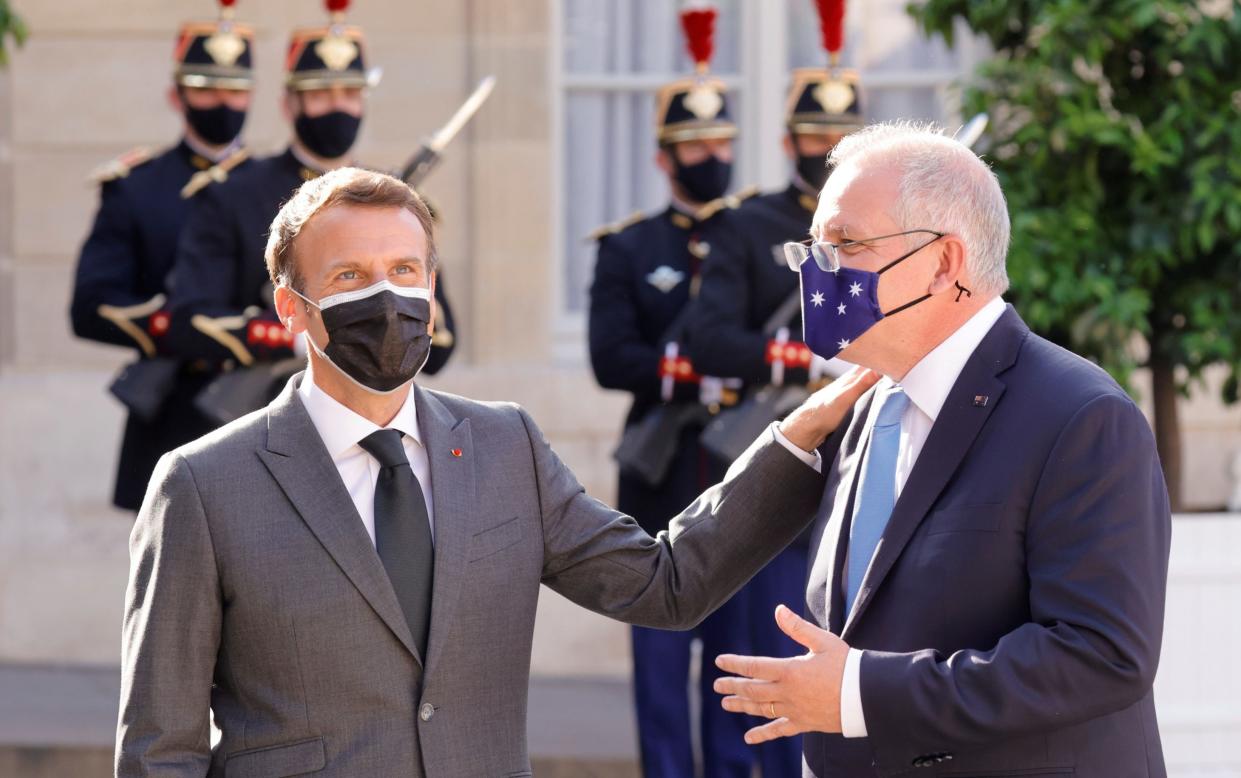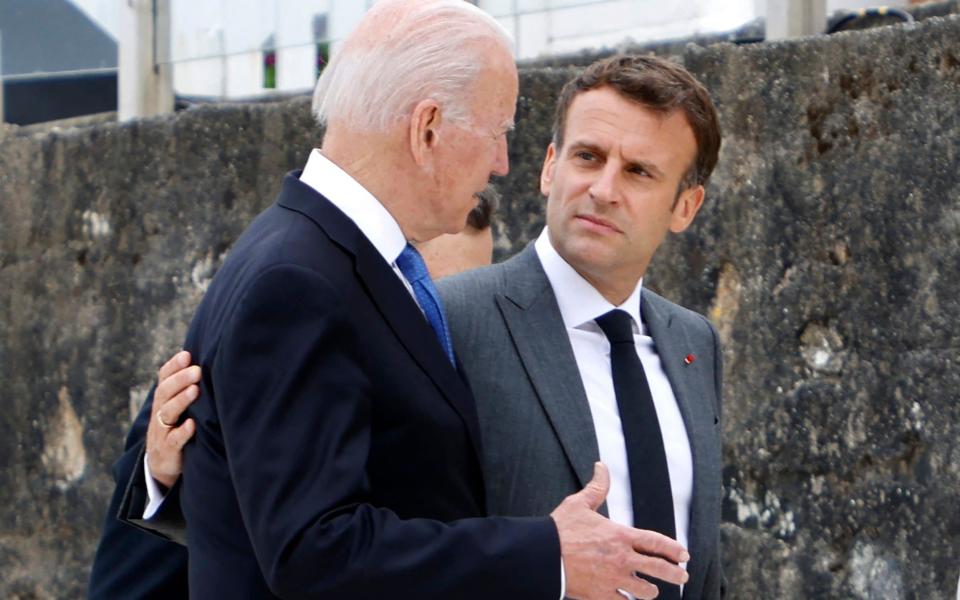France to send Australia bill for 'brutal' £45bn submarine contract breach

France is to send Australia the bill for its “brutal” ditching of a £45bn submarine contract as it emerged President Emmanuel Macron is refusing to take calls from his opposite number in Canberra.
Mr Macron was said to be in a ‘dark rage’ over Australia reneging on the contract in favour of the Aukus military pact with Britain and the United States, and initially recalled his Australian and American ambassadors.
Naval Group, the company that was to make 12 diesel-powered submarines for Australia, on Thursday said it would send a detailed bill for the contract breach in the coming weeks.
Its CEO, Pierre Eric Pommellet, said Canberra had sent a letter saying it was happy to proceed with the deal on the same day the contract was cancelled.
Describing it as “unprecedented brutality,” Mr Pommellet said that Australia terminated the deal out of “convenience”, meaning “we are not at fault”.
The contract stipulates in that case that Australia must honour "payment of our costs that were incurred and those to come, linked to the dismantling of infrastructure and IT as well as the redeployment of employees," he said in an interview with Le Figaro.
"We will assert our rights.”
Naval Group, which is 60 per cent state-owned, had already completed €900 million in work on the submarines, the French defence ministry said this week, but suffered no losses as the work was covered by Australian payments already made.
Watch: Macron to restore envoy to U.S. after submarine spat
France has made no move to rebuild bridges with Australia, which said it had opted for nuclear-powered rather than diesel-driven submarines due to rising concern about the security situation in the Indo-Pacific, namely China’s military muscle-flexing.
Relations between Mr Macron and Prime Minister Boris Johnson remain frosty since Mr Johnson quipped 'donnez-moi un break' over the submarine deal.
“With the Prime Minister’s openly mocking tone UK-French relations are heading in the opposite direction,” lamented Britain’s former ambassador to France, Sir Peter Ricketts.
The comments are likely to further fuel Paris' anger. Two diplomatic sources said there had been instructions to limit contacts with Britain in the immediate term.
"'Global Britain', it seems, is aimed at projecting Britain around the world, while marginalising Europe. We can’t accept that," said one French diplomatic source, referring to a slogan used by Johnson to describe the UK's ambitions following Brexit.
The crisis had plunged France and the US into their worst diplomatic strife since the 2003 US-led invasion of Iraq.
However, the two countries’ leaders have started tentatively patching things up after a call from Joe Biden to his counterpart Emmanuel Macron on Wednesday night. France’s foreign minister Jean-Yves Le Drian said it would “take time” to fully heal the relationship after talks with Antony Blinken, the US Secretary of State, in New York on Thursday.

While the French ambassador to Washington is due to return in the coming days, the Elysée said no decision has been made on the French ambassador’s return to Canberra and no call has been scheduled with Scott Morrison, the Australian prime minister.
Speaking in Washington, DC late on Wednesday, Mr Morrison said he had requested a call with Mr Macron to no avail. He said he understood France’s “hurt and disappointment” but the Australian government had to “do what is right for Australia’s national security interests”.
Echoing Boris Johnson’s comments, Mr Morrison said “there was (no) any other way that such news could be made more attractive”. He reiterated claims he had told Mr Macron in mid-June “that Australia had very big concerns about the capability of the conventional submarine and its ability to meet the strategic environment that Australia would have to operate in”.
Yet after a joint meeting in late August, France and Australia issued a statement saying both had “underlined the importance of the future submarine program”.
Mr Morrison said: “I look forward to engaging again with President Macron – I know there will be some time before that occurs, but we will patiently pursue those opportunities because we want to work together.”
French defence ministry spokesman Hervé Grandjean said the last-minute call to ditch the deal just before it went public showed the lack of preparation about the decision, which he said was probably made within “a tiny circle” in Canberra.
The Australian government confirmed it had sent a letter to Naval Group on Wednesday last week, but downplayed its significance.
A spokesperson for the Australian Department of Defence said: “This correspondence did not refer to or authorise commencement of the next phase of the programme, which remained subject to the announcement of decisions by the Australian government.”
The ongoing chill came as France’s finance minister Bruno Le Maire said that the EU could “no longer count” on the US to guarantee its protection.
“The first lesson we must draw from this episode is that the European Union must build its strategic independence,” he said. America’s hasty withdrawal from Afghanistan without properly informing allies and the submarine crisis made that clear, he insisted.
“The US only have one strategic concern now: China and containing China’s rise in power.”
Watch: Biden call with France's Macron 'friendly' - Psaki

 Yahoo Movies
Yahoo Movies 
